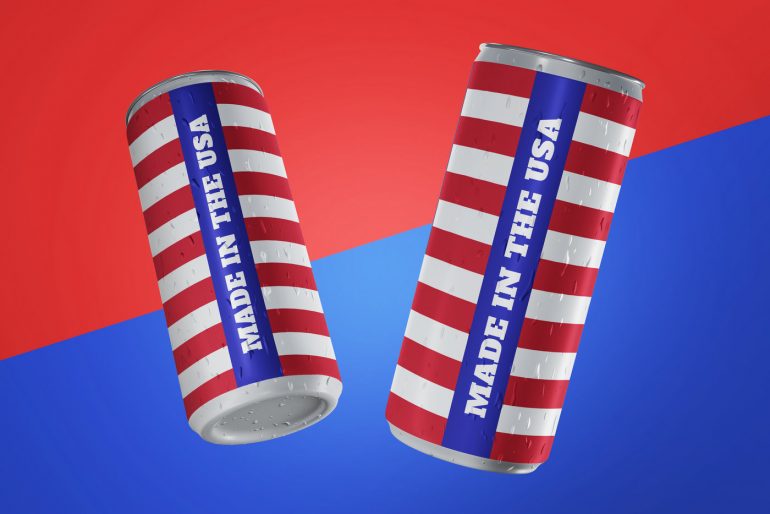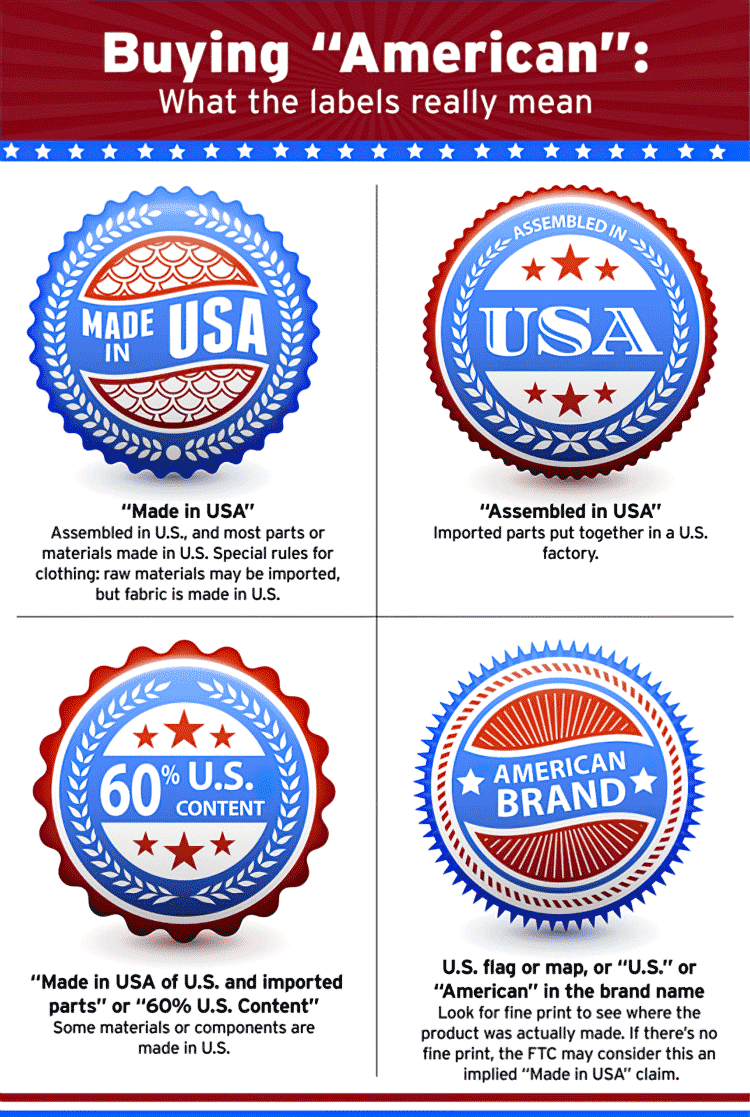How can you find products that aren’t stamped somewhere with “MADE IN” stickers that say China, India, Taiwan, Mexico?
It’s easy… if you know where to look — and assuming you don’t have a major affinity for tchotchkes.
What American-made means, officially
According to the Federal Trade Commission, “Made in USA” means that “all or virtually all” of the product was, indeed, made in America.
For a “Made in USA” claim to be accurate, all significant parts, processing and labor that go into the product must be of US origin, meaning that products should not contain any — or only negligible — foreign content. For example, the buttons on a jacket may be made abroad, or perhaps the lens cap on a camera.
The FTC’s Bureau of Consumer protection adds that a manufacturer or marketer needs competent and reliable evidence to back up the claim that its product is “all or virtually all” made in the US. (Read more about the standards here.)
America — heck, yeah! Shop USA
Given a choice between a product made in the US and an identical item made abroad, 78 percent of Americans would rather buy the American product, according to a 2013 survey by the Consumer Reports National Research Center.
Apart from checking each of your products individually, some stores — like Zappos — allow you to search their sites specifically for items made in the USA. You can also run searches to check certain websites for the phrase “Made in [the] USA” — as an example, take a look at the results from Crate & Barrel here.
A few popular products that are manufactured stateside include Crayola crayons, Sharpie markers, True Religion jeans, Maglite flashlights, Stetson hats, Oreck vacuum cleaners, Pyrex glassware, Sub-Zero refrigerators, Airstream trailers, Gibson guitars, Zildjian cymbals, Steinway pianos, Wilson sporting goods, and Little Tikes & K’Nex toys.
Of course, businesses and manufacturing change over time, so double-check what you’re planning to purchase to confirm it’s still made in the US.
A lot of smaller companies also create their product inside our borders. Here are a few sites that sell or list American-made goodies and gadgets, odds and ends:
Why “Made in the US” matters
Jeff Faux, a distinguished fellow of the nonprofit, nonpartisan Economic Policy Institute in Washington, DC told Consumer Reports, “Consumers need to understand that all jobs and wages are interconnected… When you buy foreign goods — and sometimes there’s no choice — it means that fewer US workers will have the money to buy the goods and services you sell.”
American Made Matters is dedicated to educating consumers on the importance of buying made in USA products. “The AMM logo can now be found on thousands of products that comply with our standards for made in America, which means that at least 50% of the cost (labor, materials, and overhead) is incurred in the United States and the final assembly or transformation takes place in the US.”
But why is offshore manufacturing so appealing to companies? It all comes back to money.
Consumer Reports magazine notes that in 2010, compensation costs (wages and benefits) for manufacturing jobs in the US were $34.74 per hour on average, according to the US Bureau of Labor Statistics (BLS).
That’s lower than in 13 northern and western European countries, but far higher than costs in China: $1.36 per hour (in 2008), based on BLS estimates. (Another manufacturing powerhouse, India, has even lower hourly compensation costs than China.)
But, as CR adds, labor may account for only a small fraction of operating costs. China, for example, may offer manufacturers “goodie packages” to relocate, including tax breaks, low-cost land rental, and reduced utility costs.
“The political reality is that manufacturing serves as a symbol for the American people for our economic might,” Ron Bloom, Obama’s former senior counselor for manufacturing policy said at MIT’s forum on “Rebuilding the American Economy” in 2011. “And its decline serves as a proxy for the decline in our economic might.”









